
Moss & Lichen (Parmelia sp.) / Musgo & Liquen Sierra de lo… Flickr
The worldwide, ecologically relevant lichen-forming genus Parmelia currently includes 41 accepted species, of which the Parmelia sulcata group (PSULgp) and the Parmelia saxatilis group (PSAXgp) have received considerable attention over recent decades; however, phycobiont diversity is poorly known in Parmelia s. lat.

Lasallia pustulata with Parmelia sp. (wet/mojado) Growing … Flickr
1 ATMOSPHERE AS A SOURCE OF METALS Jenkins and Davies (1966) showed a close correlation between metal amounts in lichen ashes of Lecanora gangaloides and Parmelia omphalodes and those in the ash of material deposited from the atmosphere.
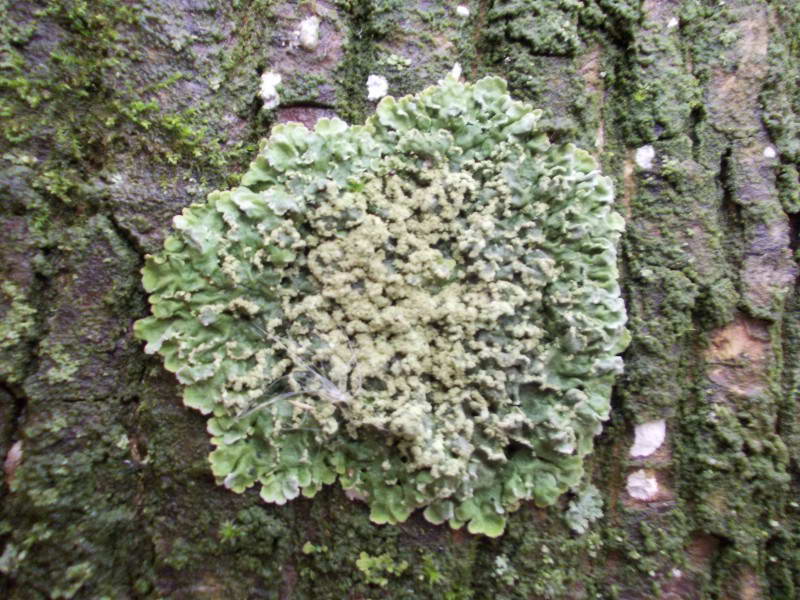
Parmelia sp.
Description Parmelia species have a foliose (leafy) thallus with a substrate attachment ranging from loose to tight. The lobes comprising the thallus are rounded, more or less straight, and may be contiguous or overlapping (imbricate). The texture of the upper thallus ranges from smooth to foveolate (covered with puts and depressions).

Parmelia sp; Galapagar (Madrid) Parmelia sp; Galapagar (Ma… Flickr
Lichen Parmelia sp. was found to produce lot of colored metabolites interfering with the UV-Vis spectrophotometric readings. Hence control and test samples were extracted into (1:1, v/v) ethyl acetate and then analyzed by spectrophotometer to get an idea about maximum decolorization. Cuvettes of 3 ml quantity and 10 mm path length with.

Foliose Shield Lichen (Parmelia sp) Western Carolina Botanical Club
Three Parmelia sp. are contained in the Indian drug chharila used as aphrodisiac (Lal & Upreti, 1995; Kumar & Upreti, 2001). In India, Parmelia chinense finds applications as diuretic and as.
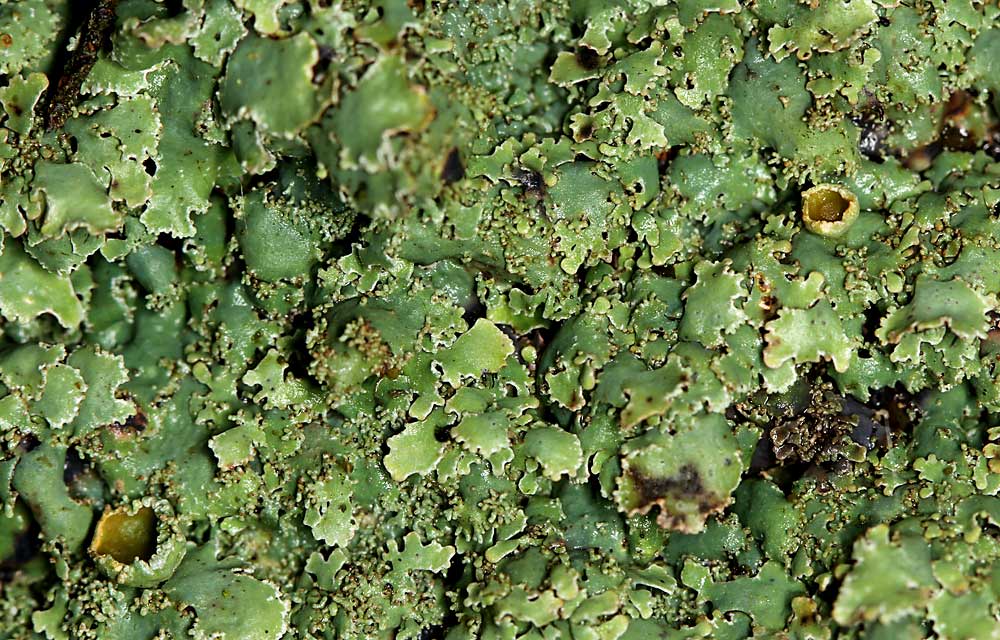
Parmelia sp. Naturbasen
Parmelia that belongs to the Parmeliaceae Family is a foliose lichen combined with one or two groups of fungi in Phylum Ascomycota or Basidiomycota and algae, which might be green algae or blue-green algae (cyanobacteria). It is generally called "Stone Flower," "Charila," "Pattharphool," or "Shilaaapushpa" in India.

herbarium
To evaluate the importance of morphological and chemical characters used in the recognition of species within the Parmelia omphalodes group, we performed phylogenetic, morphological and chemical analyses of 335 specimens, of which 34 were used for molecular analyses.
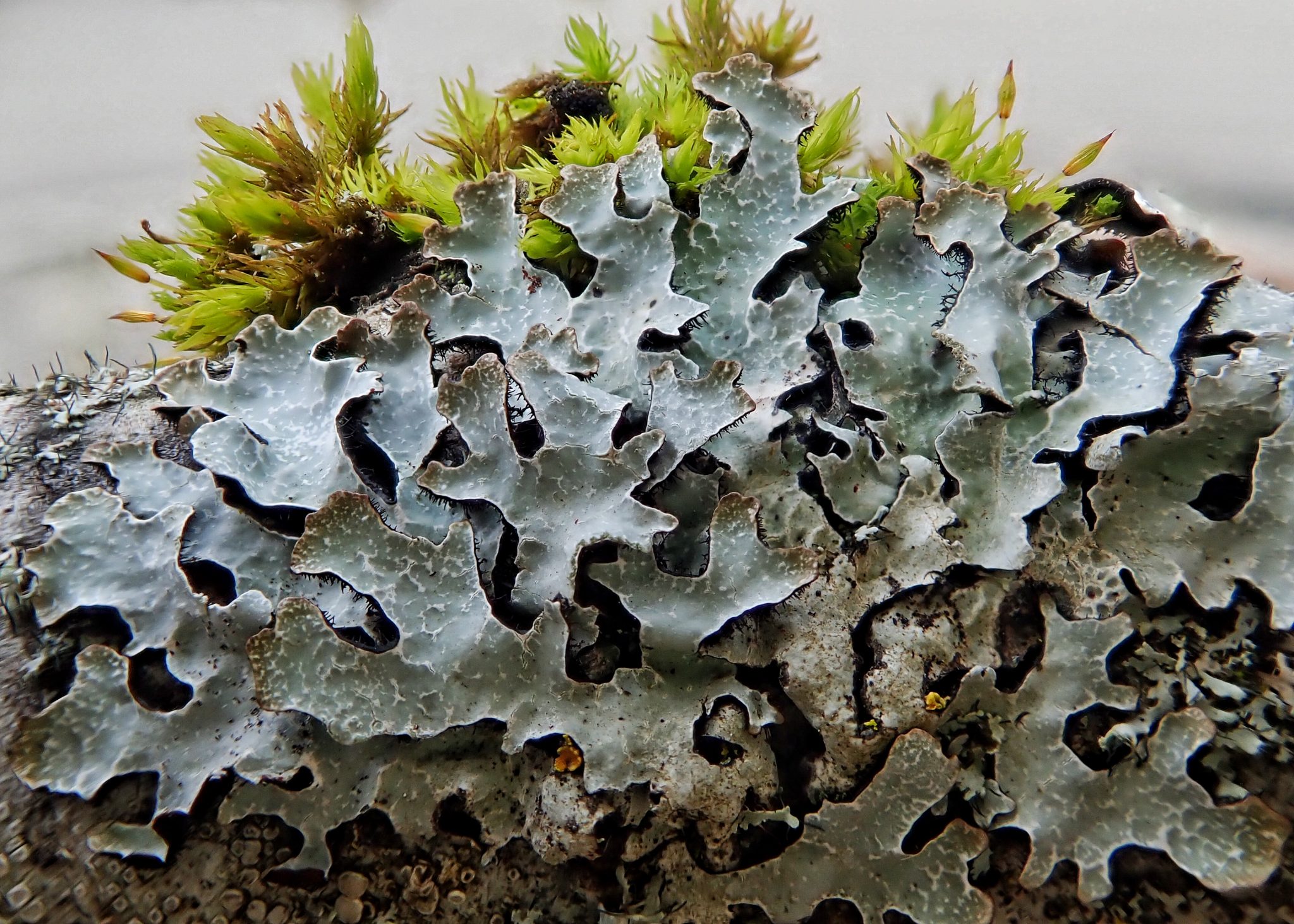
Parmelia sulcata 10,000 Things of the Pacific Northwest
The most frequent lineages of Trebouxia in the Parmelia spp. analyzed were Trebouxia sp. I02 and the new Trebouxia sp. 1. Previous studies had already found Trebouxia sp. I02 phycobionts in other genera, such as Oropogon, Melanelixia, Melanohalea, Rhizoplaca, and Montanelia (Leavitt et al., 2015).

herbarium
Parmelia that belongs to the Parmeliaceae Family is a foliose lichen combined with one or two groups of fungi in Phylum Ascomycota or Basidiomycota and algae, which might be green algae or blue-green algae (cyanobacteria). It is generally called "Stone Flower," "Charila," "Pattharphool," or "Shilaaapushpa" in India.
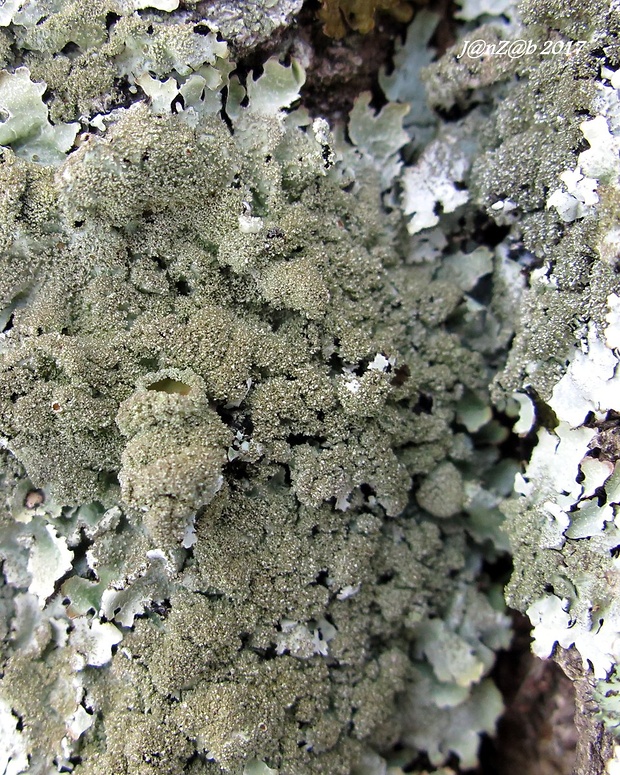
Nahuby.sk Fotografia diskovka Parmelia sp. Ach.
Parmelia sp. Punctelia borreri Ramalina sinensis Xanthoria mandschurica Dermatocarpon miniatum Parmotrema sp. Hakgala Natural Reserve, Sri Lanka: Kannangara et al. Pseudocyphellaria sp. Usnea sp. Lobaria scrobiculata: USA: Arnold et al. Nephroma arcticum Peltigera aphthosa Peltigera leucophlebia Peltigera malacea Peltigera neopolydactyla

Parmelia sulcata Whiteknights biodiversity
crottle Parmelia, largest genus of foliose (leafy) lichens, which includes among its members the species commonly known as crottle and skull lichen. Crottle, the largest foliose lichen, resembles crumpled leather and sometimes grows 90 to 120 centimetres in diameter. It is characterized by a black underside.

Parmelia sp.? , Blattflechte Foto & Bild pflanzen, pilze & flechten
2. Antimicrobial Compounds Extracted from Endolichenic Fungi. The need for new antimicrobial drugs is enhanced by the emergence of microbial resistance against almost all the currently available antibiotics and the sudden appearance of deadly viral infections [].Discovery of novel antimicrobial drugs was speculated as a solution to the growing threat of antibiotic-resistant microorganisms by.
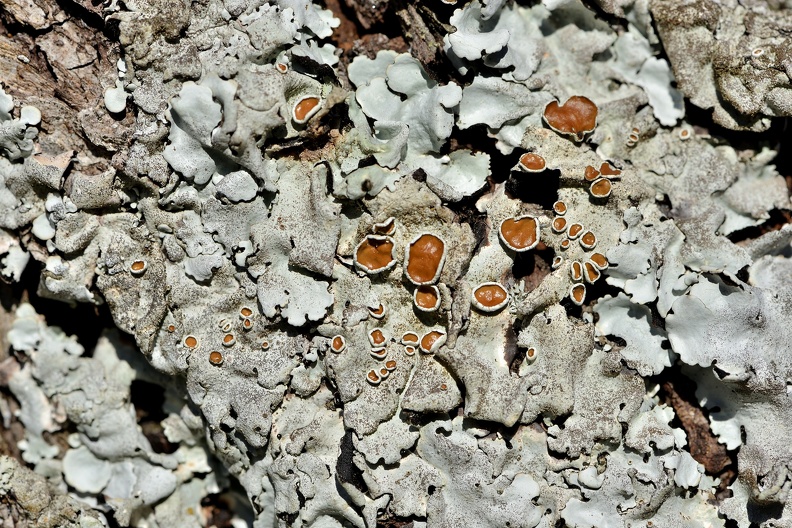
Parmelia sp.
Parmelia sulcata is a widely distributed species and one of the most common taxa in temperate Europe. The first intra-specific molecular studies on P. sulcata showed an unexpectedly high genetic.

Parmelia sp
Parmelia is one of the most representative genera within Parmeliaceae family. • Parmelia lichens arise as valuable tools for biomonitoring environmental. • Parmelia lichens produce particular specialized metabolites. • Parmelia spp. have promising pharmacological activities. Abstract

Parmelia sp. 25656 Biodiversidad Virtual / Hongos y Líquenes
Biology of Parmelia sp. Lichens. Parmelia saxatilis grows wood and rock substrates. Parmelia sulcata is more commonly found on trees. There are at least seven species of Parmelia genus in Alaska (U.S.F.S. Dillman, 2010). Microclimates can produce portions of an individual organism that grow at different rates, and have different chemistry than.
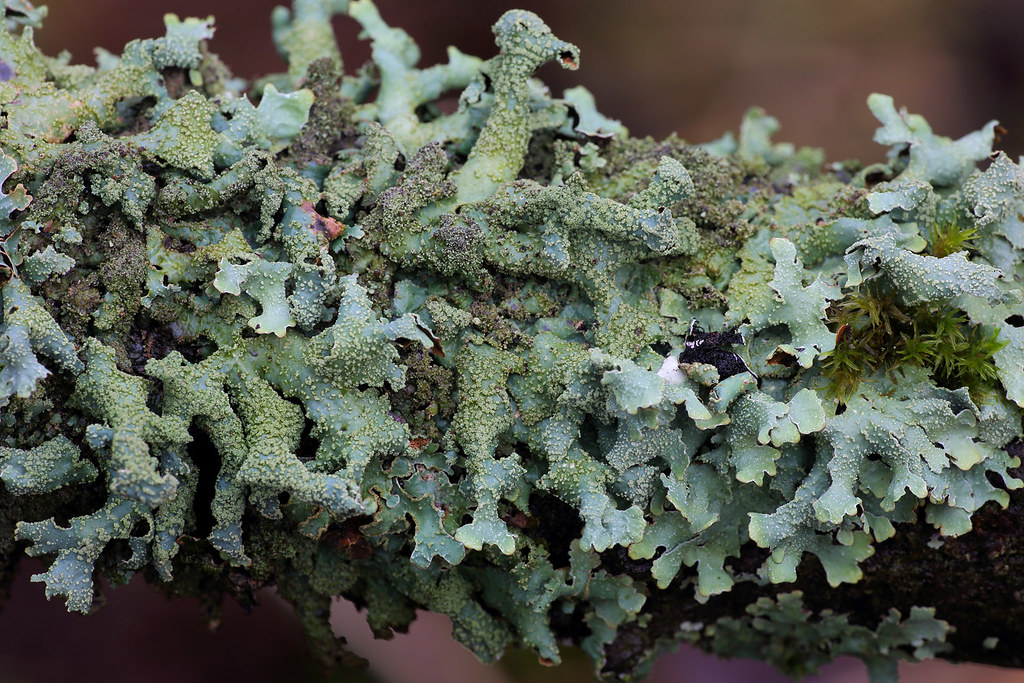
Parmelia sp January 2013. Svanemosen, Kolding, Denmark. Erland
Well-developed ascocarps on a shield lichen (Parmelia sp.). Credit: J. Stevenson, UF/IFAS. Parmelia, or shield lichen, is a common genus with a foliose growth habit (Figure 8). These large and easily observed species can be found in a variety of habitats. Their abundance has led to their being used to monitor lichen growth rates as well as.